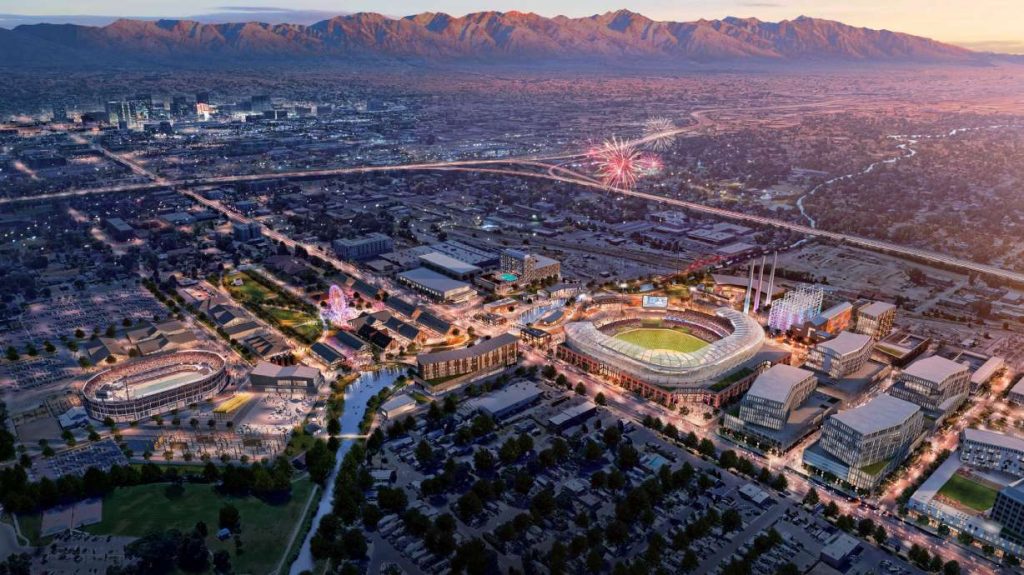Salt Lake City’s Pursuit of MLB Expansion
SALT LAKE CITY — MLB Commissioner Rob Manfred expressed his hope to select two new markets before his departure in early 2029. Preparations are already in motion to ensure that Salt Lake City is prepared should the opportunity arise.
Within a 100-acre site of Rocky Mountain Power land marked for redevelopment, a location for a future stadium has been chosen. Initial planning efforts are underway, aiming to be “shovel-ready” for construction within the next year, according to Steve Starks, CEO of Larry H. Miller Company.
“While it’s uncertain if Major League Baseball will be ready, we believe that being prepared will lead to good things,” Starks noted, following a groundbreaking ceremony for the first major project in the “Power District.”
The company has initiated work on essential utilities and infrastructure for the stadium, as Brad Holmes, president of Larry H. Miller Real Estate, emphasizes that they are focused on creating a “shovel-ready site” in anticipation of MLB’s decision.
Plans have positioned the stadium near the Jordan River, with various remediation projects already undertaken in the wider Power District area. Starks mentioned that planning agreements allow for construction to begin within three months following an MLB announcement. This readiness signals that Salt Lake City is well-prepared for potential expansion.
In 2023, the company contributed to launching Big League Utah, emphasizing the state’s ambition for an MLB expansion team. Although updates have been sparse, Manfred has mentioned the interest in adding one team to the east and another to the west by the time he leaves in 2029.
Starks maintains confidence in Utah’s prospects, buoyed by positive feedback from baseball insiders. Both Salt Lake City and Nashville, Tennessee, are seen as leading contenders, particularly given the robust economy in the Wasatch Front and the existing plans for a stadium. Moreover, Utah legislators approved up to $900 million for stadium construction, strengthening the state’s bid.
If MLB opts against Utah, there’s a fallback plan to create more redevelopment space, with the company committing $10 million to enhance the Jordan River’s quality and flow. This initiative envisions activating the river for recreational activities, ensuring that safety measures accompany environmental improvements. However, Starks reiterated that plans for a new stadium to house Real Salt Lake and the Utah Royals are not being pursued, affirming their commitment to existing projects in Sandy.



